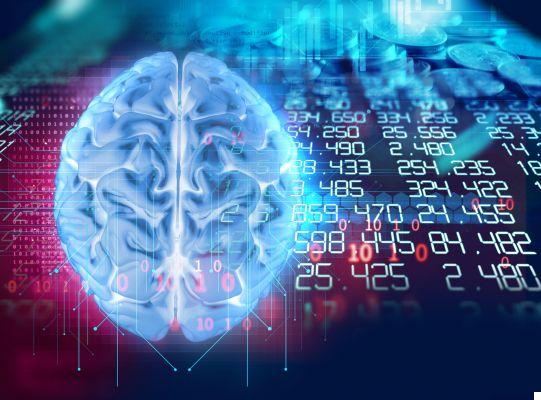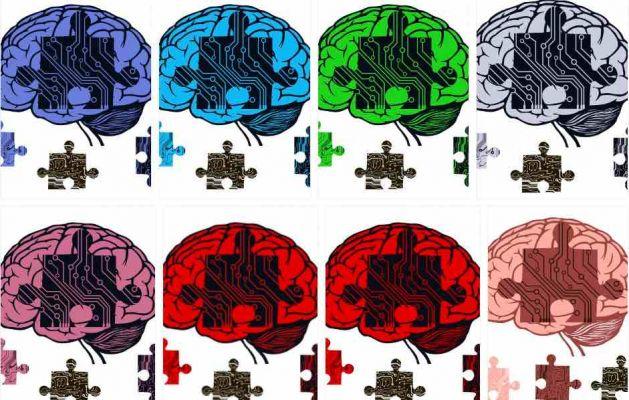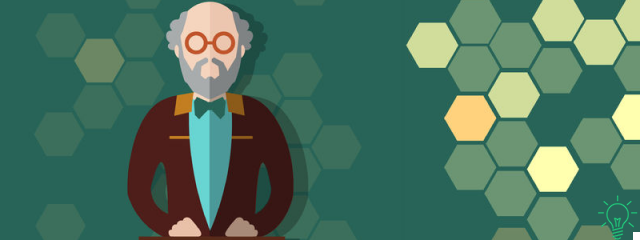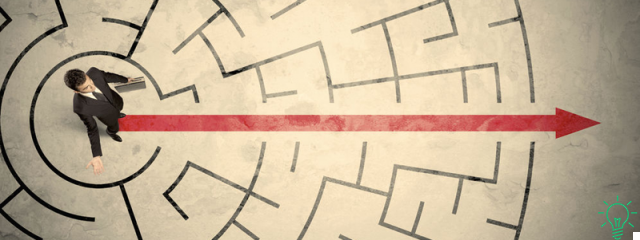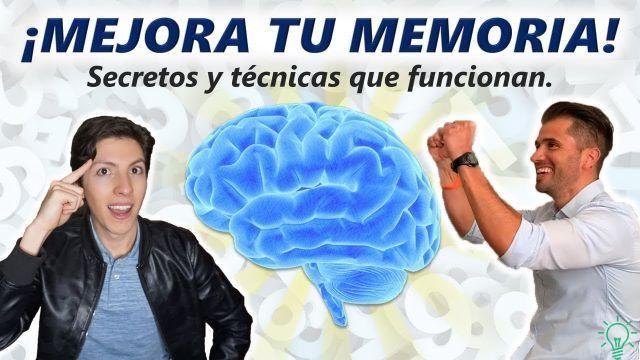
For those who study, the long-term memory it is the main ally to work less and obtain better results. But what exactly does it consist of?
The main brain system that deals with memory, both short-term and long-term, is located in the hippocampus and in the areas close to it; the hippocampus is a nervous structure found in the deep layers of the brain, and which owes its name to the fact that, in shape, it resembles a seahorse.
In addition to memory, he is also involved in the management of emotions and spatial orientation.
And it is probably for this reason that it is so important, in the associative and visualization processes of mnemonics, to use images that have particular spatial characteristics (very large, or very small, always and in any case in three dimensions) and are emotionally impacting.
Within the hippocampus and in areas close to it, information is not stored in single packets within single cells; rather, information is dismembered and distributed over groups of cells, only to be "reassembled" in the moment of memory.
Surely you have happened to say "I have it on the tip of my tongue but I don't remember it", and then, thanks to a clue, at the beginning of a word, or simply by passing time, being able to retrieve the information from long-term memory.
The reason is that it is often enough to remember even a small piece of information for our brain to be able to reconstruct it in its entirety, drawing here and there from the cells and from the different neuronal circuits on which the information has been scattered.
This information scattering mechanism, of which we are all "victims" when we chase some memories that we are sure we have, but which just do not come to mind, is tremendously useful when using memory techniques, in particular that from the word key.
And the reason is simple: it underlies the functioning of long-term memory.
What is long-term memory
In neurology and cognitive sciences there are many different classifications of memory, mostly reserved for very specialized analyzes. But the most important distinction is that our brain stores information in two ways, a short-term one, in the so-called short-term memory, or MBT, and a long-term one, in the so-called long-term memory, or MLT.
Simplifying, it can be said that these two main modes of information retention depend on the degree of scattering of the information itself on different neuronal circuits and cells. Thus, short-term memory has less scattering and activation, while long-term memory has greater neuronal scattering and activation.
As a consequence, short-term memory has, from the point of view of the student who has to remember, 2 problems:
- first, it can only retain information for a short time, say about twenty seconds
- secondly, it has a limited capacity (on average, 7 "inputs" at a time) so that information that is not transferred to long-term memory is downloaded, ie forgotten.
In reality, however, these two features are very convenient, I would say indispensable, because they allow us not to clog us up with useless information.
An unforgettable representation of the unfortunate consequences of an excessive memory is given by Jorge Luis Borges in his short story "Funes, el memorioso", present in the collection of short stories "Fictions".
It tells the story of how Ireneo Funes, a man with a monstrous memory acquired following a fall from a horse, is condemned by his own prodigious ability to a life of solitude and incommunicability.
Speaking of Funes, Borges writes:
“I suspect, however, that he was not very capable of thinking. Thinking is forget differences, is generalize, to abstract. In the crowded world of Funes there were only details…. ”
(Trad: I suspect, however, that he was not very capable of thinking. To think means to forget the differences, to generalize, to abstract. In Funes' packed and crowded world there were only details….)
According to Borges, therefore, without the extraordinary ability to forget inherent in the short-term memory, we too, like Ireneo Funes, would be submerged by the details of the world around us, and almost incapable of acting and thinking.
It is important to remember but more important is to forget
(Rainer Maria Rilke)
If on the one hand, therefore, we do not want to get clogged up with details, on the other hand it is very important that some information is stored in the long-term memory, as it is selected by the brain as useful.
The system of transferring information from short-term memory to long-term memory uses a very simple mechanism, which is that of repetition. Our brain is not a fool, and therefore if an information is repeated, over and over, the brain understands that for some reason it has an importance: then with each repetition the neuronal activation is increased, as well as the scattering of the details. information on multiple cells and multiple circuits.
In this way, with each repetition the brain will have more and more points from which to start to reconstruct that specific memory, which therefore becomes more and more stable.
This does not mean that the long-term memory is an infinite and eternal store: it is always possible to forget even what is transferred in the long-term memory! Much less anyway than you might think. There are in fact thousands of pieces of information that we think we have forgotten, and indeed, we don't even remember to remember them.
But then they emerge spontaneously when you least expect it (and the older you get, the more frequent this phenomenon is), just as it is also possible to actively recall them with specific relaxation techniques, or through clinical hypnosis guided by an expert.
This simplified model of storage, which contemplates the transfer of information from short-term memory to long-term memory through repetition, should be very familiar to any student: you read a datum, and then repeating it over and over again transforms it into a stable memory.
But think about it ...
In fact, most of the things you remember don't follow this repetition-remembering mechanism!
Indeed, you certainly remember many details of what you did this morning: what you ate for breakfast, the people you met, the places you went ...
Yet you have never repeated them!
And surely you also remember thousands of things that have happened to you or you have seen happen even once: hundreds of details of how you broke your foot, or the attack on the Twin Towers, or your vacation in Greece, or your first kiss….
Yet, again, you never repeated them!
While the date of birth of Napoleon, even if you studied it in elementary school, middle school and high school, and maybe seen it written dozens of times more, and repeated as many times, you probably don't remember it at all now.
How mnemonics promote long-term memory
It would therefore seem that some information is able to circumvent this transmission mechanism from short-term memory to long-term memory that normally occurs with repetition. And instead they are able to pass directly into long-term memory, immediately acquiring a very high degree of neuronal scattering and activation.
The difference, however, is not so much in the type of information, as in the method of acquiring it.
The date of birth of Napoleon is information that you acquire by reading or listening, thus making it enter the so-called "phonological loop", a system for processing information on a verbal basis, not particularly powerful or stable. And therefore, without repetition, what enters the phonological loop tends to be quickly forgotten. So don't be surprised if you find it hard to study!
The first kiss, the attack on the Twin Towers, or the people you met this morning, instead enter your brain through real "events" with multisensory characteristics, therefore able to immediately activate more cells and neuronal circuits, by- effectively passing the short-term memory and placing itself immediately, albeit with different forces (depending on the amount of activation generated by each "event"), in the long-term memory.
Not that a certain degree of repetition is not necessary in some cases. In fact, we have seen that even long-term memory is not necessarily eternal; however, the need for repetition is infinitely less.
All mnemonics exploit this multisensory mechanism by mimicking, with imaginative devices, the way in which events are immediately placed on a higher step than the structures dedicated to memorization.
The loci technique, for example, places images that represent concepts or information along an already known path, making them interact with the stations of the path itself.
Phonetic conversion transforms abstract numbers into images through a simple and ingenious coding system.
The key word method for foreign languages breaks down the unfamiliar word into one or more known words, associates them with meaning, and thus creates solid clues for our brain that will facilitate its memory.
On the other hand, the method of spaced repetition is an exception, the focus of which is to carry out repetitions, but in a scientifically optimal way from the point of view of the quantity and the time interval between one and the other.
And so, being able to bring memory techniques into study or everyday activities ultimately means learning to work better on the mechanisms of long-term memory formation, saving enormous amounts of time and repetition!
To deepen and touch the power of memory techniques, I suggest you download for example the free pdf on phonetic conversion “How to memorize telephone numbers with the Leibniz technique”, paying attention to the different way in which this technique allows abstract information such as numbers to be transferred into long-term memory.
For doubts / curiosities do not hesitate to write me a message below, I will reply as soon as possible.
And if you liked the article and you know someone you think could be useful, share it with the buttons below.
A greeting!
Anthony










